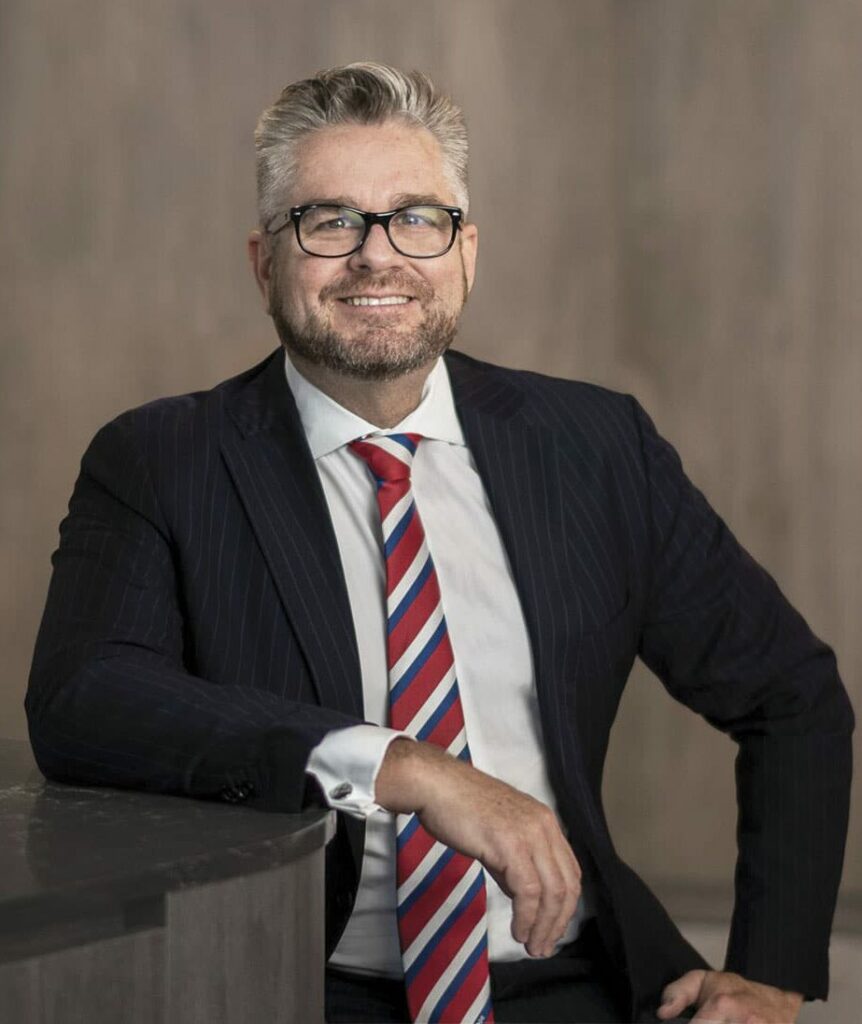LEGAL
Hard To Keep Ahead Of A Lie

WORDS: Mathew Fleming PHOTOGRAPHY Supplied
In the many years I have been investigating matters around the world, perhaps the greatest tool available to me has been the art of interviewing people. Regardless of the burgeoning advances of tech and AI, to me, the human element remains the most important factor in delivering investigation outcomes, and none more valuable perhaps than interviewing suspects or respondents. When doing this, it baffles me that people can sit there and continue to lie, even when faced with alternate facts discovered via robust investigations. As a prosecutor, I lived by the mantra of never asking a question you don’t already know the answer to. Thus, it is incumbent on me to find relevant evidence before any interview.
Many of the interviews I conduct are confrontational. Participants are usually reluctant to partake, often trying to maintain their own lies to obfuscate guilt or further investigation. With this platform, our duel commences.
I was seated in a grand and luxurious hotel lobby in Jakarta, with the sumptuous sounds of a pianist playing almost as my own film score (which made for a fantastic interview audio recording), when my suspect greeted me. A petite Indonesian woman dressed formally in a flowing white skirt, a button-up pale blue blouse, a neat, braided ponytail, and elegant steel-rimmed spectacles. I knew this woman to be the human resource coordinator for a large multi-national oil company based in Indonesia. She was educated and had a great command of the English language, albeit not her first language.
On this occasion, my case involved the embezzlement of almost USD$8 million from expatriate staff superannuation accounts. During their time in Indonesia, each expatriate would have a percentage of their salary garnished for national superannuation and held in a company trust account, which they could only receive on a vested exit of Indonesia after seven years in the country. As it turned out the circulation of expats in and out of Indonesia was quite a rapid churn, and funds were left in the company trust by the exiting expats. Given her position, what my suspect had worked out was that she could redeem the expat contributions or cashed out penalty seemingly back to the company at a lower percentage, and then seemingly pay to the exiting expat. She put in place a series of closed named banking accounts, which ultimately fed back to herself. The scheme netted her just over USD$8m over about two years. I had managed to trace her opening account in her original Indonesian maiden name (she was now using a French name) and secured a photo identification document from her local “village” where she was registered as an Indonesian national for national identity purposes. I was also able to secure 14 still images from three different banks of her undertaking transactions on those fraudulent accounts.
As I always do, I began the interview with small talk, and her consent to audio record our interview. This included some background questions and conversation to develop rapport and build the impression that her information on this occasion would be greatly assisting my investigation. Curiously, it was she who chose the location, as she said she didn’t want people inside the company knowing she was assisting my investigation, as she suspected others inside her company may be involved in the fraud. This is a common theme for actual perpetrators, who will point their finger elsewhere to appear innocent. As she answered questions that were leading her down a path to put her in proximity of each transaction, with knowledge of the scheme, and direct access to all areas of the scheme that would place her as the culprit, she began to lose the colour in her face and started shifting in her seat, always peering at the large file of documents on the table in front of us that I was yet to share. And so I began to unmask the scheme and her as the perpetrator.
She was becoming increasingly anxious and visibly upset, now red-faced, shaking, and with tears in her eyes. As I produced her Indonesian identity card she lunged forward in her seat and exclaimed loudly “That is not me.” Then I produced the bank account with the same name, “No, it’s wrong, somebody is making me look bad.” Next, I laid out three photos, one of which was a fantastic photo of her in a bank wearing the same steel-rimmed spectacles. With this, she stood up, thrashed her arms across the table scattering all the documents, and as she turned, I heard and then saw upon her white skirt, the embarrassing physical evidence of her distress as she ran towards the bathroom.
I did not see her again until the matter was before the Indonesian courts, where she took a plea bargain, agreed to pay back some of the moneys and served three years in a low-security custodial facility, undertaking community service.
Emotions and raw physical reactions are not uncommon when the truth is revealed, but it’s usually the micro expressions that are the early tell-tales of deception I look for – the wry smile, the casual nod of the head, the clenching of fists, or gritting of teeth – these all tell me to keep going, the truth will surface soon. Sometimes the truth is on show blatantly through arrogance or ignorance.
In Shanghai investigating a large misappropriation of soft drink sales, on my first day at the enormous factory I watched the almost 1000 workers enter the factory gates. Most were on foot or bicycle, but one worker arrived in a brand-new Audi sedan. I turned to the CFO and asked, “Who is that?” He said, “Oh that’s Jay, he’s our logistics coordinator, he has a rich uncle apparently.” Immediately I had my first – and coincidently only – suspect. He chain-smoked throughout our interview, and when I began to unravel his involvement in the scheme, he would start to smoke faster, at times just butting out his cigarette and light another. I knew this was his ploy to gain more time to answer the last question, the record pause between question and answer being four minutes and 27 seconds. It pays to be patient. On this occasion, I had witness testimony and video footage of Jay parking his Audi at a black market warehouse, where we also located the company’s product. Turns out Jay was leading a double life supporting a young girlfriend with expensive habits, a luxurious city apartment and a penchant for plastic surgery, while his own wife and child lived in a basic council-type dwelling with no luxuries. After we handed the matter to the Chinese police, who confiscated what they could into the coffers of the local police accounts (apparently), the investigating police were driving the Audi. After a 48-hour investigation and court appearance, Jay was convicted, and the amount stolen (over USD $ 2 million) meant he was given a death sentence. As was their habit, the police approached the company to negotiate a settlement whereby Jay could live if the company sponsored a prison sentence of 10 years. A commercial arrangement was met, and Jay seemingly continued to live.
As we go through our daily lives, we are all practising investigators, finding facts and searching for the truth, in all situations, be that with friends, family, colleagues or even getting a quote for electrical work on the house. My advice is to listen to what people are telling you, prepare yourself with knowledge where possible and look for human signs such as twitches, inflections in voice, and lack of valid detail – all signs that deception may be in play.
The old saying remains true: “Fool me once, shame on you; fool me twice, shame on me.”
Matthew Fleming is a respected investigator for the highest courts and governments around the world. He has more than 30 years experience in law enforcement, forensic consulting, and advisory, including over 23 years of this in leading high-profile corporate and government investigations across the Asia Pacific. Now, as a forensic investigator with KordaMentha, Matthew handles sensitive, challenging engagements, including factual investigations, large-scale global fraud, and corruption matters, as well as complex financial crime, anti-money laundering, and workplace investigations. He has delivered outcomes for his clients in multi-level, multi-jurisdictional, and deeply complex assignments.
https://kordamentha.com/people/matthew-fleming

Matthew Fleming








